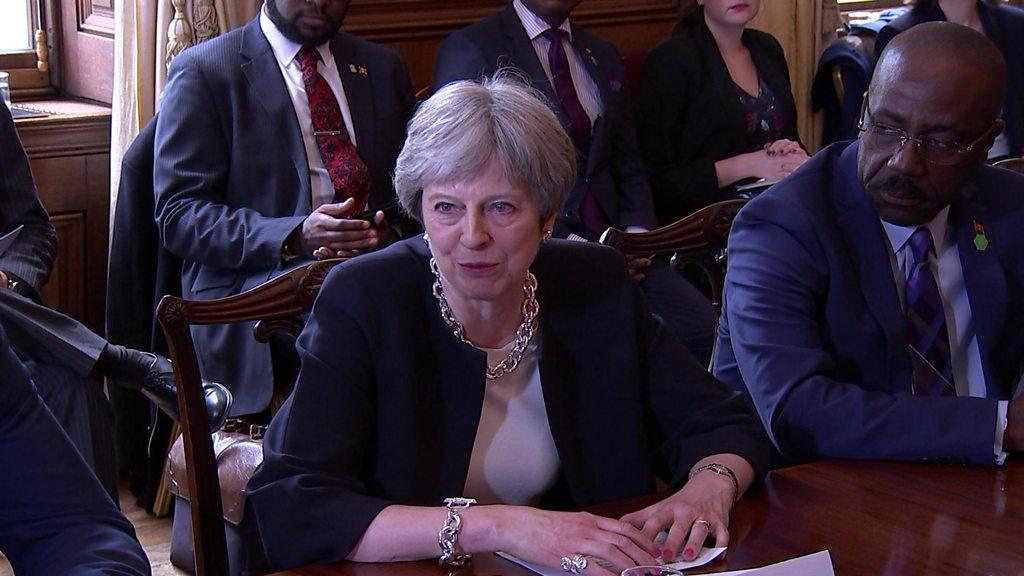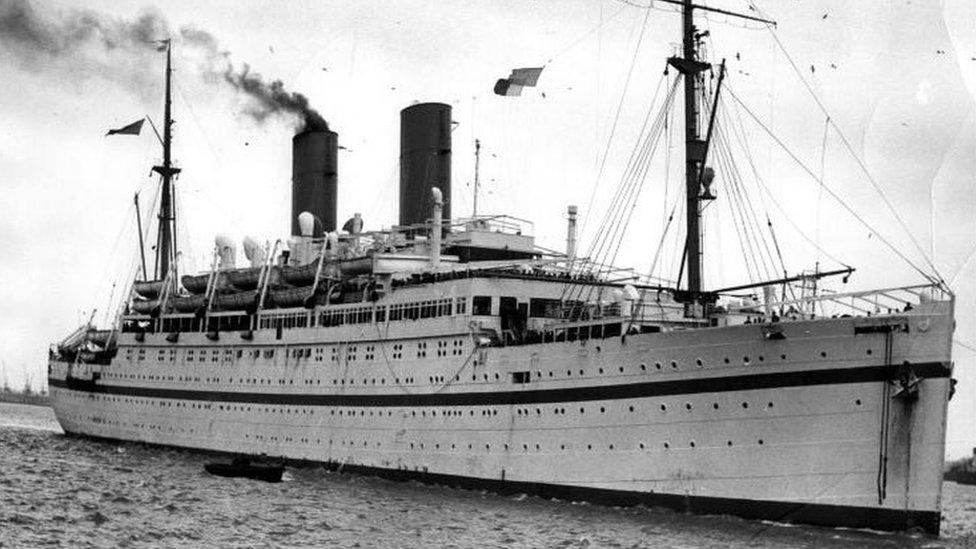'Windrush battle has been soul-destroying'
- Published
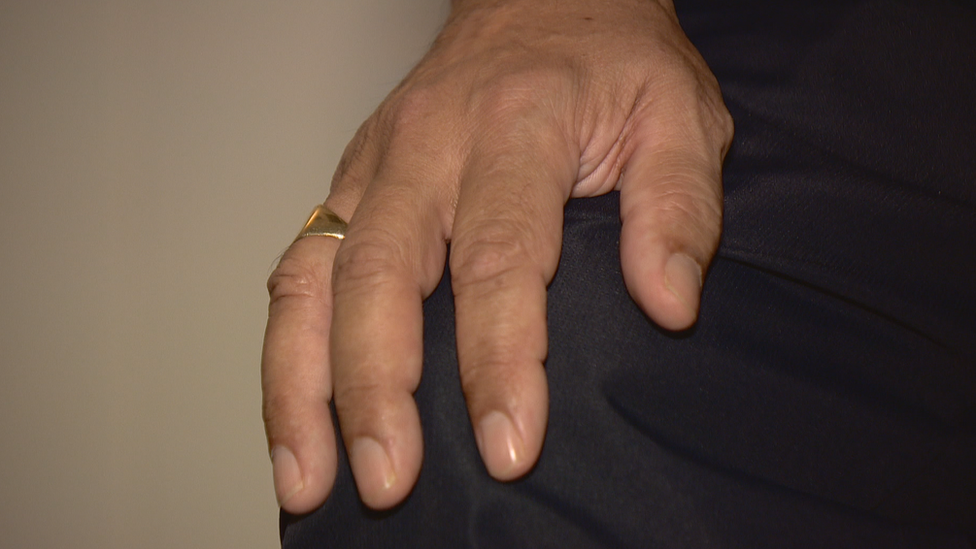
Theo has lived in the UK for 50 years
Theo has lived and worked in the UK for almost 50 years ago but he says changes to immigration rules left him jobless and fighting a "soul-destroying" battle to be recognised as a British citizen.
His case was raised in parliament by his MP two years ago but was largely ignored at the time.
Yet he says the recent political storm over the Windrush migrants is the same as the battle he has been fighting.
Prime Minister Theresa May, who was home secretary when the changes to policy were implemented, has said she was "genuinely sorry" about the anxiety caused to the Windrush generation, some of whom lack key documents and have been told they need evidence to continue working or even remain in the UK.
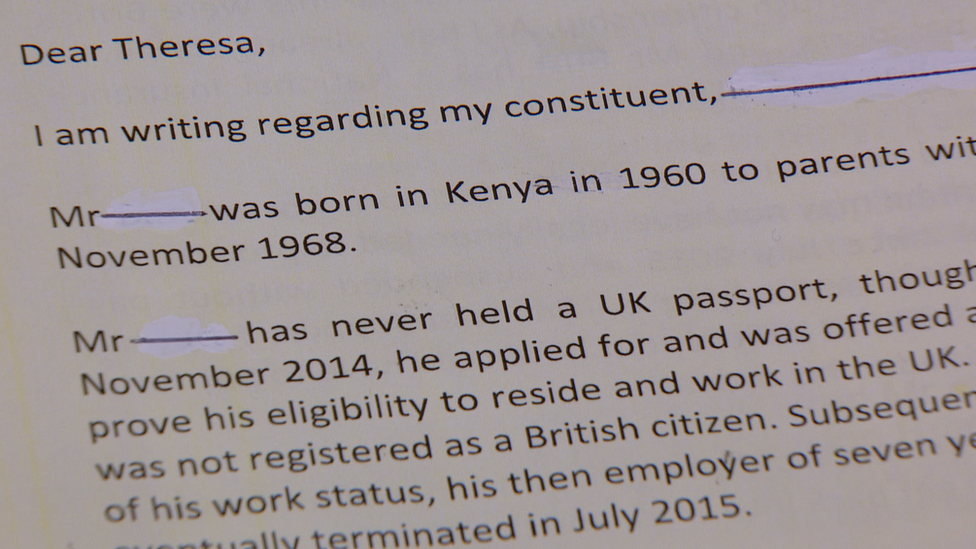
Theo's case has been taken up by his MP Carol Monaghan
Theo, who asked to remain anonymous, did not come from the Caribbean like the Windrush migrants but Kenya, which had been a British colony when he was born.
He was just eight years old when his family came to Britain seeking a "better life".
In November 1968, there was a growing exodus of people of Indian and Pakistani descent fleeing from laws in the former British colony which prevented them making a living.
Theo arrived in the UK on his mother's British passport and despite living and working in the UK for half a century he never applied for his own passport.
"All these years I never needed a passport because I have a fear of flying," he said.
Theo lived in London at first before moving to Scotland 25 years ago after meeting his Scottish wife. He now lives in Glasgow.
For years he has worked as a carer for people with learning difficulties.
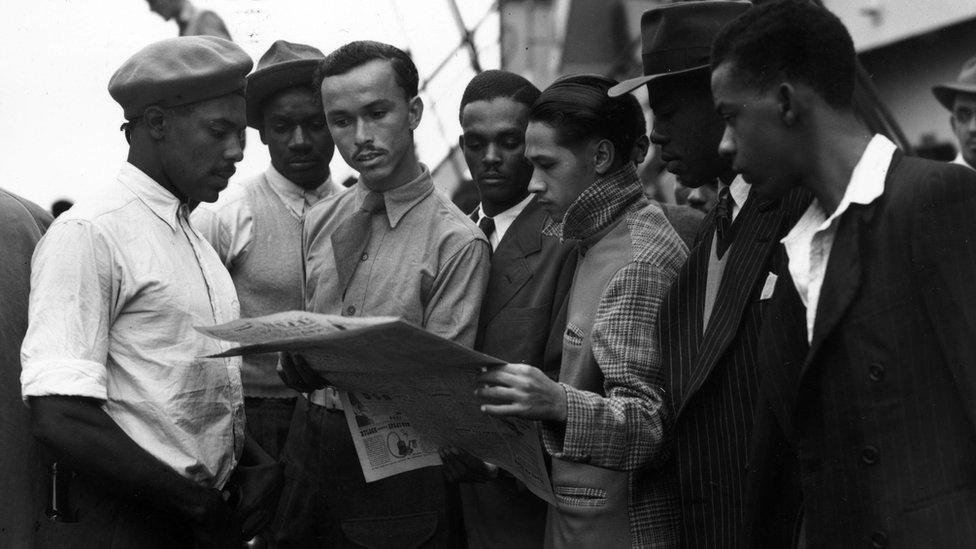
The Windrush generation are named after the Empire Windrush ship which brought workers from the West Indies to Britain in 1948
He says he never needed a passport to get work as he had a national insurance number, which he had paid tax on for 37 years.
However, after successfully getting another job within the same company about four years ago he was told new immigration rules meant he needed a passport to secure the position.
"I applied for a passport and was accused of being an illegal immigrant," he says.
"The government have refused to give me a passport.
"I ended up losing my job and I had been there for eight years."
He says he could not work for three years and had to live off his son and daughter.
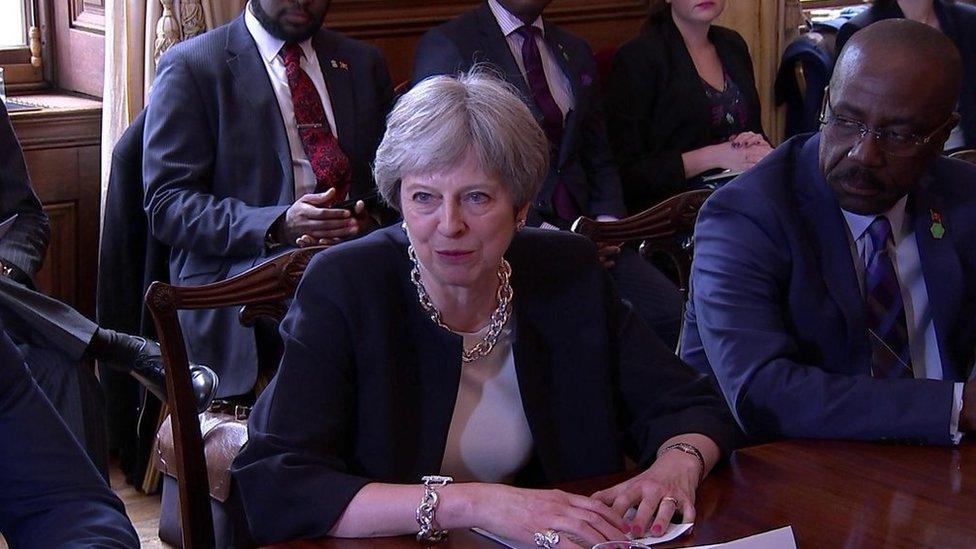
Prime Minister Theresa May apologised to the Windrush generation and their families
Theo says it has been "soul-destroying" and the effect it has had on his wife and family has been "catastrophic".
"I had every door slammed in my face," he says.
"Everything I have applied for they refused me."
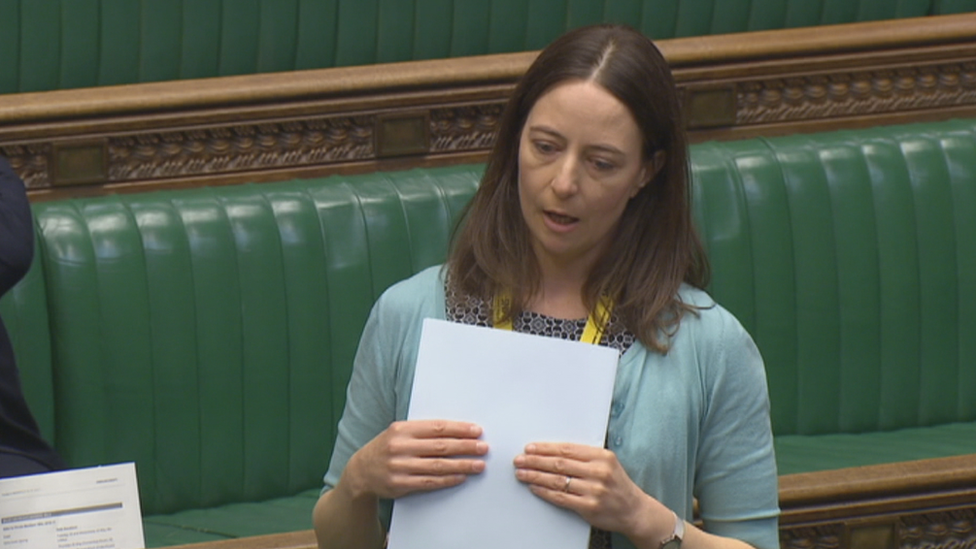
SNP MP Carol Monaghan raised the issue in parliament two years ago
His case was taken up by SNP MP Carol Monaghan in 2015 and after a lengthy and costly battle he was initially given a limited leave-to-remain visa.
His status has since been changed to settled, which means he has indefinite leave to remain, but not British citizenship.
"I was an eight-year-old boy. I came along with my family and this is my country," he says.
"I don't know any other country. Why would I not think I was British?"
A Home Office spokeswoman said: "We are looking at ways we can ease the burden for individuals affected by this issue."
- Published18 April 2018
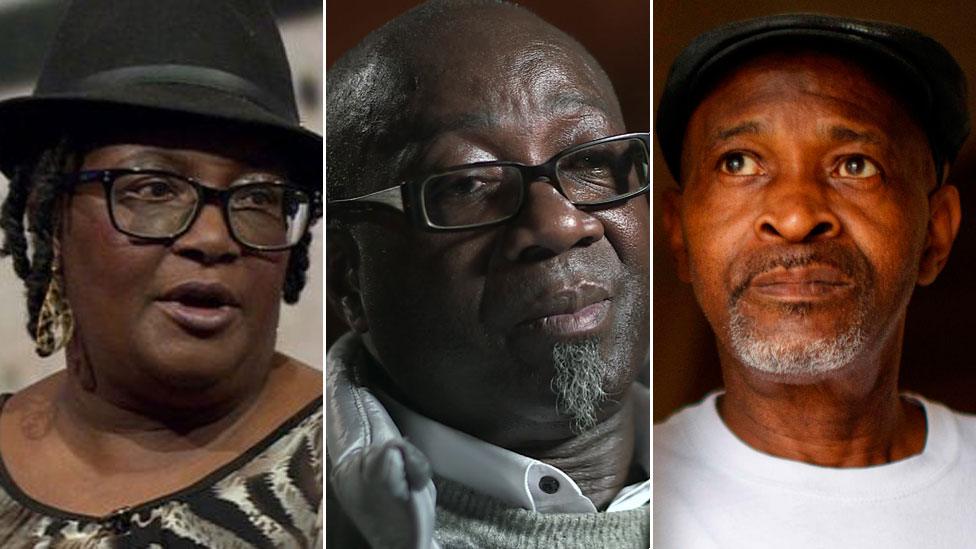
- Published17 April 2018
